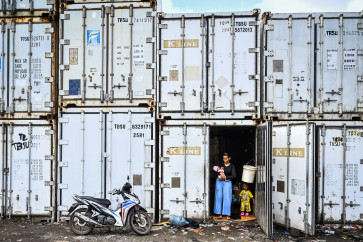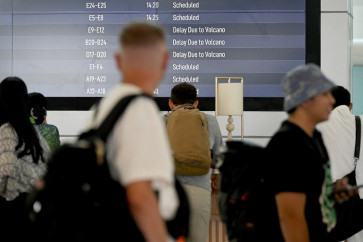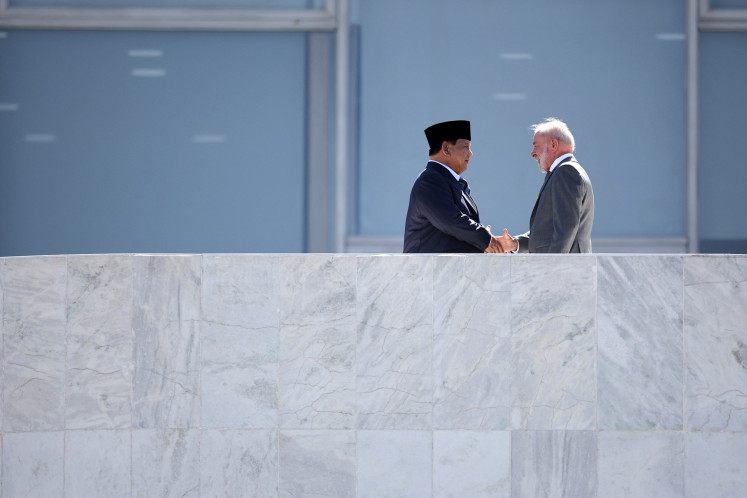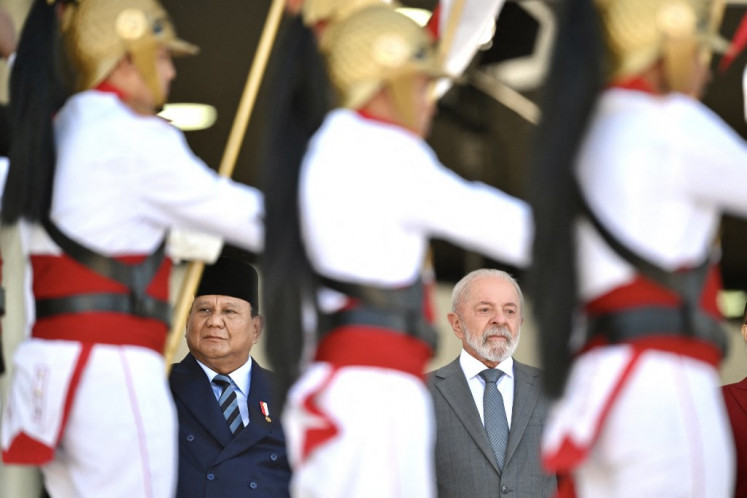Popular Reads
Top Results
Can't find what you're looking for?
View all search resultsPopular Reads
Top Results
Can't find what you're looking for?
View all search resultsMiangas Island? No worries!
Those who learn international law, especially the law of the sea would apparently know the famous Las Palmas Case decided in 1928
Change text size
Gift Premium Articles
to Anyone
Those who learn international law, especially the law of the sea would apparently know the famous Las Palmas Case decided in 1928. Max Huber was the sole arbitrator for the case that has been considered one of the most phenomenal arbitration cases ever. Las Palmas was disputed by the Netherlands and the United States of America and the arbitrator decided that sovereignty over the island belonged to the Netherlands. Las Palmas is another name for Pulau Miangas.
Last month Pulau Miangas became a story in Indonesia. Unconfirmed news indicated that the island was included in the Philippines' tourism map. While confirmation is being sought, worries regarding the losing of an island have spread in the Indonesian media. In response to this, Indonesia's minister of foreign affairs asserted that Miangas is an integral part of Indonesia (The Jakarta Post Feb.14, 2009).
On a different occasion, the governor of North Sulawesi, where Pulau Miangas is located, told Kompas (Jan. 12, 2009) that if the government is still ignorant of this, we may witness a sequel to the Sipadan and Ligitan case. Indonesia once again may lose islands, says the governor. It can be inferred from this, the governor believed that once Sipadan and Ligitan belonged to Indonesia but were taken by Malaysia. Malaysia won the ownership dispute at the International Court.
If one could pick an island with the strongest legal status for being an integral part of Indonesia, then Miangas may be that island. The reason is, Miangas is the only island, the status of which was confirmed through an arbitration process. In 1928, it was decided that the Netherlands owned the island. Consequently, the island was inherited by Indonesia, being the successor of the Netherlands.
In international law, this principle is known as uti possidetis juris, where territory and boundaries of a state resemble those of its predecessor. Simply speaking, there should be no worries that the Philippines or other states could claim sovereignty over Pulau Miangas.
What about Sipadan and Ligitan? That was a different case. While the sovereignty of Miangas had been confirmed almost thirty years before the independence of Indonesia, the ownership of Sipadan and Ligitan was not clear until 2002. These were two "ownerless" islands which both Indonesia and Malaysia claimed. It was confirmed that the two islands had never been either part of the Netherlands, being Indonesia's predecessor, nor British, the predecessor of Malaysia. Consequently, neither Indonesia nor Malaysia could automatically own the islands. Failure in negotiations made the two neighboring states bring the case before the International Court of Justice (ICJ).
In December 2002, the ICJ decided that the sovereignty of Sipadan and Ligitan was with Malaysia. Effectivit* is the principle applied by the ICJ, referring to the effective occupation demonstrated by Indonesia and Malaysia over the two islands. It is worth noting that Indonesia and Malaysia agreed that only those actions conducted prior to and until 1969 counted. Whatever Indonesia or Malaysia did to the islands after 1969 had nothing to do with the sovereignty. It is, therefore, incorrect if one says that Malaysia won Sipadan and Ligitan because it built a tourism resort on the islands, since the resorts were apparently built after 1969.
The things Indonesia should be concerned about are development and paying attention to the Miangas and Indonesian citizens residing there. This deals with their economic and social aspects of life, which in turn have something to do with nationalism. This might not concern the sovereignty of the island since it has been confirmed, but a weakening nationalist spirit may cause a negative impact to national unity.
In addition to economic development, the Indonesian air force may need to intensify air patrols over the small outer islands. With regard to Miangas, Air Squadron 5: Sultan Hasanuddin, for example, can optimize air patrols using its Boeing 737 Maritime Patrol Aircraft. It has been indicated that the aircraft is equipped with advanced technology and has adequate flying coverage and duration required to cover the whole of the Indonesian archipelago.
This is not the time to think about sovereignty over islands, but the prosperity of the people inhibiting the islands. In addition to food and clean water, there is an urgency to provide the people with adequate education, health, electricity etc. This has something to do with being comfortable to be part of Indonesia.
The writer is a lecturer in the Department of Geodesy and Geomatics, Gadjah Mada University. He is currently an Australian Leadership Award Scholar (PhD candidate) at the University of Wollongong on technical aspects of Ocean Affairs and the Law of the Sea. This is his personal opinion










